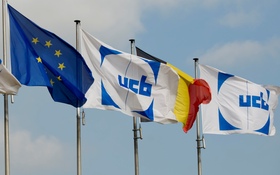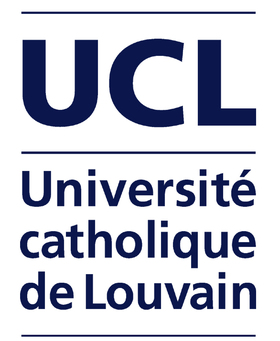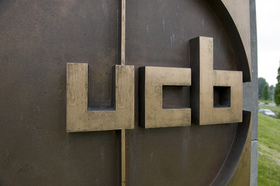UCL – UCB Chair: UCL develops research on lupus and arthritis with the support of UCB
Naar de Nederlandstalige versie
Vers la version en français
Brussels (Belgium), May 6th, 2011 – UCL has set up a Chair in systemic inflammatory rheumatic diseases with the support of UCB. The Chair will focus on two diseases in particular: rheumatoid arthritis (RA) on one side, and systemic lupus erythematosus (SLE) on the other. The objective? To become more efficient in diagnosing rheumatoid arthritis and uncovering various mechanisms that cause lupus. This, in both cases, with a view to offering more effective treatment to patients who suffer from these conditions.
This Chair was established with support from the Louvain Foundation and is coordinated by Professors Frederick Houssiau and Bernard Lauwerys of UCL’s Rheumatology Division. « It represents a recognition of the quality of work of UCL researchers and a real opportunity to develop additional responses in terms of diagnosis and treatment of inflammatory rheumatic diseases ».
Contrary to popular belief, rheumatology is not only concerned with symptoms related to aging or overuse of our locomotor system. More than 100,000 Belgians suffer from chronic inflammatory rheumatic diseases such as rheumatoid arthritis or systemic lupus erythematosus. These diseases do not result from a wear and tear of bone or joint structures but from an inflammatory process caused, in particular, by a disorder of the immune system. Such inflammatory rheumatism preferentially affects young adults (mostly women), and even children. Symptoms? Swollen joints with rheumatoid arthritis but also problems with the skin, kidneys, heart or brain with severe lupus. Finally, the disease can cause serious locomotor disability, including death of the patient in very severe cases.
The purpose of the Chair is twofold: to allow earlier diagnosis for a more targeted treatment, and to discover the mechanisms that trigger inflammatory arthritis.
- rheumatoid arthritis: early diagnosis of inflammatory rheumatism is a major challenge: any delay may cause irreversible damage. UCL researchers have now been able to identify, via synovial biopsies, very different gene expression profiles ("molecular signatures") depending on the pathology. The next stage? To validate these different profiles on a large number of patient samples in order to eventually develop a "diagnostic kit".
- systemic lupus erythematosus: this autoimmune disease is characterised by the production of "autoantibodies" that cause inflammation. The symptoms are relatively easy to detect, however, the mechanisms that trigger them are still unknown. UCL researchers are therefore working on identifying molecular targets specific to these mechanisms that may be treated with drugs. The discovery of these mechanisms will help develop more targeted treatments.
The approach of the team led by Professors Frederick Houssiau and Bernard Lauwerys falls within the framework of the so-called "translational" research. Besides basic research (laboratory only) and clinical research (at the bedside only), translational research consists, based on clinical issues encountered in patients and material taken from them, of a search for molecular explanations of disease processes and identification of diagnostic markers in order to return to patients with new treatments resulting from such research.
UCL underlines how important it is that basic research can also be financed by businesses, in the same way as applied research. UCB, for its part, wishes to emphasize its openness and collaboration with new partners of such international renown as UCL to boost research and innovation. Ivo Huybrechts, Medical Director, UCB Belgium: "Over the years, UCB has built a great expertise in major diseases of the immune system, but there is still an enormous amount to discover in this therapeutic field in order to help people who suffer. Collaboration with the academic world is one of the essential ways to advance research and find solutions for patients."
For further information
Isabelle Decoster, Attachée de presse UCL
T +32 10 47 88 70, isabelle.decoster@uclouvain.be
Cindy Maas, External Communications, UCB
T +32 495 588 377, cindy.maas@ucb.com
About UCB
UCB, Brussels, Belgium (www.ucb.com) is a biopharmaceutical company dedicated to the research, development and commercialization of innovative medicines with a focus on the fields of central nervous system and immunology disorders. Employing approximately 8 500 people in over 40 countries, UCB generated revenue of EUR 3.2 billion in 2010. UCB is listed on Euronext Brussels (symbol: UCB).
About UCL
UCL is one of the oldest universities in Europe (1425). It serves more than 27,289 students of some 119 nationalities with hundreds of courses in all fields of knowledge. The ranking by the QS World University Rankings (2010) gives it the 124th place, making it the first university in the French Community of Belgium. More information about UCL on: www.uclouvain.be.
Forward looking statement
This press release contains forward-looking statements based on current plans, estimates and beliefs of management. Such statements are subject to risks and uncertainties that may cause actual results to be materially different from those that may be implied by such forward-looking statements contained in this press release. Important factors that could result in such differences include: changes in general economic, business and competitive conditions, effects of future judicial decisions, changes in regulation, exchange rate fluctuations and hiring and retention of its employees.
Isabelle Decoster, Attachée de presse UCLT +32 10 47 88 70,
Asset Download
Stay up-to-date on the latest news and information from UCB



